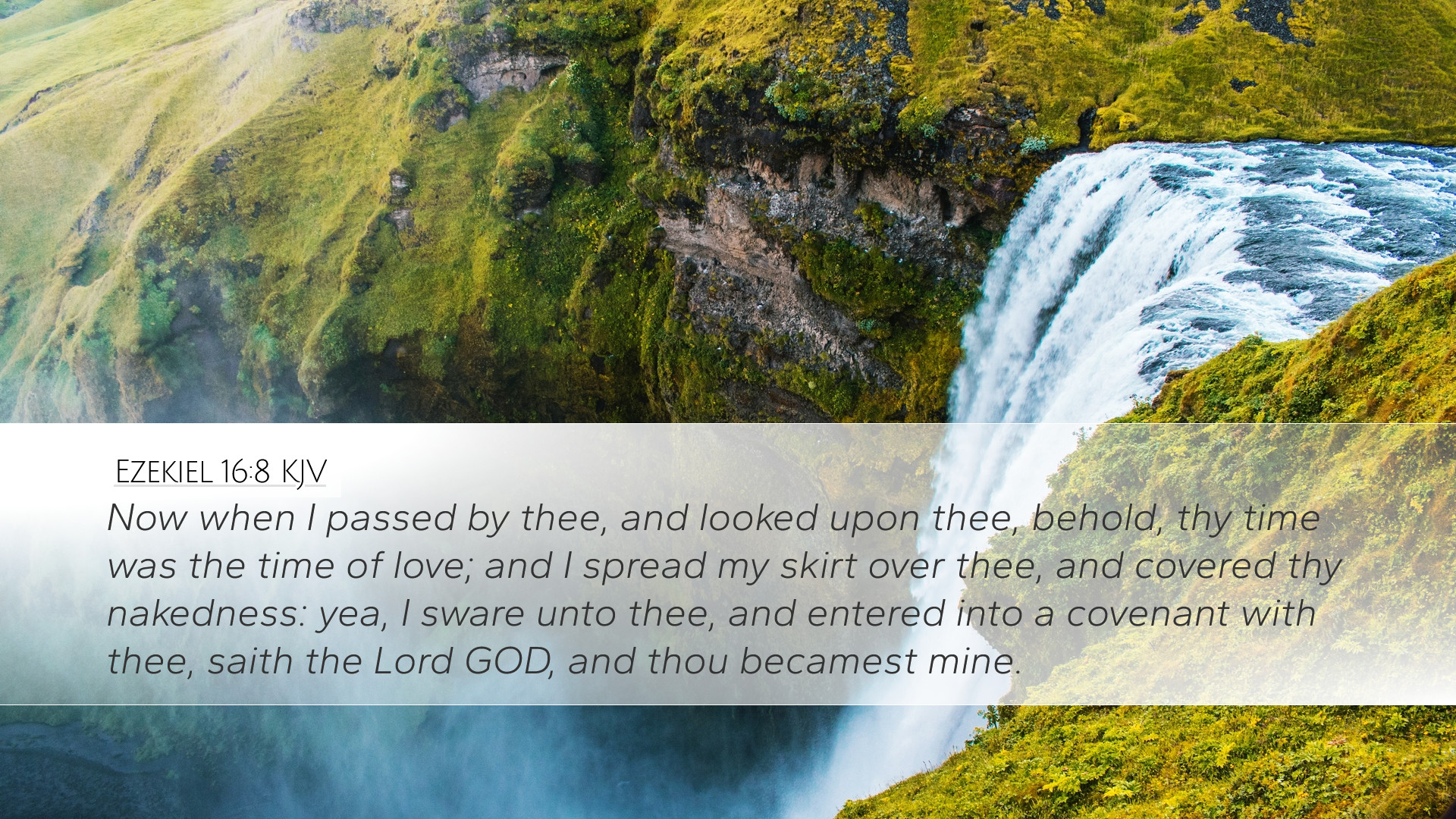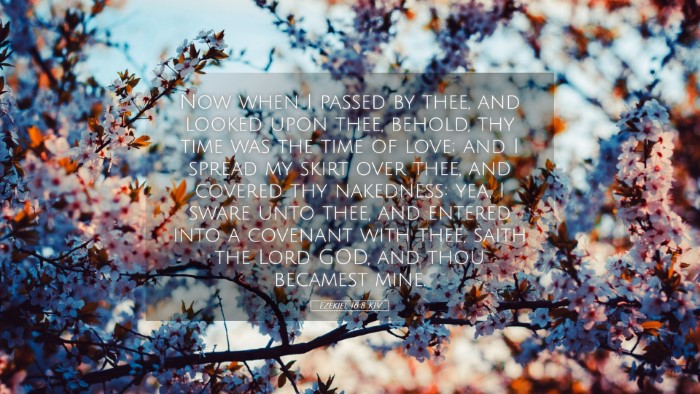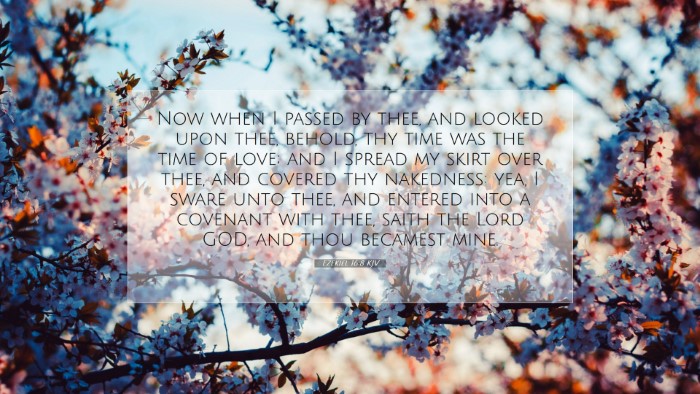Ezekiel 16:8 Commentary
Bible Verse: Ezekiel 16:8 - "When I passed by you again and looked upon you, behold, you were at the age for love; and I spread the corner of my garment over you and covered your nakedness: yea, I swore unto you, and entered into a covenant with you, saith the Lord God, and you became mine."
Introduction
This passage from Ezekiel stands as a testament to God's redemptive love and covenant relationship with His people. The imagery used by the prophet Ezekiel encapsulates profound theological themes such as love, commitment, and divine grace. In this commentary, we draw insights from esteemed public domain theologians including Matthew Henry, Adam Clarke, and Albert Barnes to enrich our understanding of this pivotal verse.
Contextual Background
Ezekiel, a prophet during the Babylonian exile, often employed vivid imagery to convey God's messages to the people of Israel. Chapter 16 presents a metaphor of Israel as an unfaithful wife, revealing both Israel's shame and God's unwavering love and commitment.
Historical Framework
In ancient Near Eastern culture, the practice of forming a covenant was akin to a marriage bond and was sealed with promises and acts of fidelity. This context adds a layer of understanding to the metaphorical language used in this chapter.
Exegesis of Ezekiel 16:8
Ezekiel 16:8 serves as a pivotal point in the narrative, illustrating God's initiative in establishing a covenant. Each element of the verse can be unpacked to reveal deeper theological insights.
Divine Love and Compassion
When I passed by you again and looked upon you
- This phrase signifies God's active involvement in the history of His people. Matthew Henry emphasizes that God's renewed attention reflects an eagerness to restore and bless despite their previous state of destitution.
- Albert Barnes notes that God's "looking upon" Israel indicates an intimate awareness of their condition and emphasizes His compassionate nature.
The Age for Love
Behold, you were at the age for love
- This metaphor signifies the maturity of Israel as a nation, ready to enter into a loving relationship with God. Adam Clarke points out that this represents the readiness for divine engagement and the initiation of a marriage covenant.
- Furthermore, it signifies hope and potential, indicating that God's love meets His people in their most vulnerable state.
The Corner of My Garment
I spread the corner of my garment over you
- This act symbolizes protection, intimacy, and a commitment of love. Heinrich-Joseph Schmid elucidates that the act of spreading a garment indicates providing security and shelter.
- Matthew Henry writes that this demonstrates God's willingness to cover our shame and nakedness, reminding us of His grace which abounds in our faults.
Covenantal Relationship
And I swore unto you, and entered into a covenant with you
- The covenant here signifies a binding agreement sealed by divine commitment. Adam Clarke discusses how God's swearing illustrates the seriousness and permanence of His promises.
- Albert Barnes emphasizes that divine covenants always come with responsibilities and blessings, highlighting God's desire for mutual relationship.
Ownership and Belonging
You became mine
- Here, the completion of the covenant is encapsulated in the notion of belonging. Matthew Henry articulates that when God claims ownership, it denotes both care and accountability.
- This aspect serves to reassure the people that despite their unfaithfulness, they remain beloved and valued in God’s eyes.
Theological Implications
The rich metaphor of Ezekiel 16:8 extends to contemporary theological discourse as well, with wide-ranging implications for understanding grace, the nature of God, and the human condition.
Grace and Restoration
The overarching theme of grace evident in this passage cannot be understated. Both Henry and Clarke underscore the importance of viewing God as a loving redeemer who seeks to restore His people despite their failings. This denotes a profound truth of God's grace that permeates Biblical narratives.
Human Agency and Response
While God extends love and establishes a covenant, the response of the people is critical. The implication is that a genuine relationship with God requires acknowledgment of His grace and a commitment to live in accordance with His will.
Implications for the Church
This text resonates as both a warning and a promise for the modern church. The call is built upon the recognition that God is ever seeking a deeper relationship with His people, urging pastors and theologians to reflect on their covenant relationship with God.
Conclusion
In Ezekiel 16:8, layers of imagery reinforce God's unrelenting love, while presenting a profound understanding of love and covenant. As we reflect on this passage, let it serve as a reminder of our standing before God—the beloved, called into relationship, and equipped to respond to His grace.


